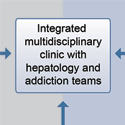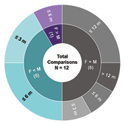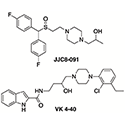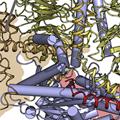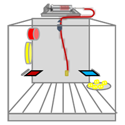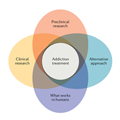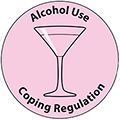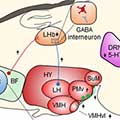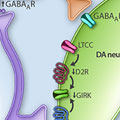Reviews To Read – February 2022. Published in Lancet Gastroenterology and Hepatology and Coauthored by Lorenzo Leggio of the NIDA IRP Clinical Psychoneuroendocrinology and Neuropsychopharmacology Section. Despite its increased recognition as a major public health issue, alcohol use disorder is mostly underdiagnosed and undertreated. The undertreatment and underdiagnosis of alcohol use disorder is most concerning… [Read More]
Reviews to Read
Sex differences in opioid and psychostimulant craving and relapse: a critical review.
Reviews To Read – January 18, 2022. This systematic review summarizes clinical and preclinical studies on sex differences in psychostimulant and opioid craving and relapse. The results of the clinical studies reviewed do not appear to support the notion that women are more vulnerable to psychostimulant and opioid craving and relapse. The results of the… [Read More]
New Drugs, Old Targets: Tweaking the Dopamine System to Treat Psychostimulant Use Disorders
Reviews To Read – December 2021. Published in Annual Review of Pharmacology and Toxicology by Amy Hauck Newman, et al. The use of illicit psychostimulants, such as cocaine and methamphetamine, continues to pose significant health and societal challenges. Despite considerable efforts to develop medications to treat psychostimulant use disorders, none have proven effective, leaving an… [Read More]
G protein-coupled receptor-effector macromolecular membrane assemblies (GEMMAs)
Reviews To Read – September 2021. Published in Pharmacology & Therapeutics by Sergi Ferré, et al. G protein-coupled receptors (GPCRs) are the largest group of receptors involved in cellular signaling across the plasma membrane and a major class of drug targets. The canonical model for GPCR signaling involves three components — the GPCR, a heterotrimeric… [Read More]
Animal Models of Drug Relapse and Craving after Voluntary Abstinence: A Review
Reviews To Read – July 2021. Our review describes recently developed rat models of relapse after voluntary abstinence, achieved either by introducing adverse consequences to drug taking or seeking or by providing mutually exclusive choices between the self-administered drug and nondrug rewards. We discuss recent neuropharmacological findings from studies using these models, future directions, and… [Read More]
Improving translation of animal models of addiction and relapse by reverse translation
Reviews To Read – October 2020. Recent advances in animal addiction models have emphasized translational challenges. In this Review, Venniro and colleagues introduce a reverse translational approach that may provide an ecologically relevant platform from which to discover new circuits, test new medications and improve translation.
Advances in the science and treatment of alcohol use disorder.
Reviews To Read – March 2020. In this review, the authors critically report the scientific and clinical evidence supporting alcohol use disorder as a treatable disease using medications and/or behavioral treatments. Approved treatments and promising new interventions are reviewed and discussed, with a special emphasis on personal treatment approaches. The authors also note the critical… [Read More]
Cannabidiol: Not a Cure-All, but a Candidate for Coping With Cue-Induced Craving
Reviews To Read – February 2020. In this commentary, David Epstein evaluates a recent human-laboratory study that showed promising results for cannabidiol (CBD) as an anti-craving medication in people with recent histories of opioid use disorder (OUD). He emphasizes that people at different stages of opioid use or OUD have different needs, so potential treatments… [Read More]
Animal Models of (or for) Aggression Reward, Addiction, and Relapse: Behavior and Circuits.
Reviews To Read – July 2019. Inappropriate and pathological aggression plays a leading role in the suffering and death of millions of people, and further places an untenable strain on the caregivers and families of those afflicted. In some cases, like addictive drugs, aggression can be highly rewarding (appetitive) and continually pursued despite short- and… [Read More]
Synaptic and intrinsic plasticity in the ventral tegmental area after chronic cocaine.
Reviews To Read – March 2019. Cocaine drives persistent changes in synaptic transmission and ventral tegmental area dopamine neuron activity. Francis et al. reviews how these alterations contribute to cocaine addiction and highlight therapeutic avenues for future treatment.

